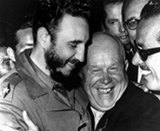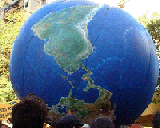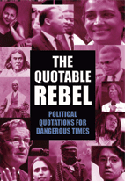
Interview with Letters From Young Activists Co-Editor Dan Berger
Avalon Publishing Group/Nation Books firm published in November 2005 a book of letters from various younger Movement activists, titled Letters From Young Activists: Today’s Rebels Speak Out. The book was co-edited by Dan Berger, Chesa Boudin and Kenyon Farrow. It also contains a preface by former Weather Underground fugitive Bernardine Dohrn, who was one of the 1960s anti-war activists interviewed in the Oscar-nominated documentary film of a few years ago, The Weather Underground. (Co-editor Boudin’s still-imprisoned father, David Gilbert, was another of the 1960s anti-war activists interviewed in The Weather Underground movie). Toward Freedom recently interviewed Dan Berger about the Letters From Young Activists book project.





